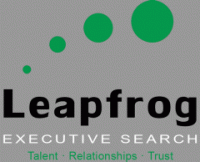Why Go Green?
Category : 2017
From Henry David Thoreau’s Maine Woods to Theodore Roosevelt making 151 million acres of land national forest to Rachel Carson’s Silent Spring, the green revolution was making an impact long before anyone began recycling. Plenty of compelling community action and the incredible opportunity to leverage results well into the future has made “going green” a strategic lifestyle choice for many.
A second green revolution began with the launch of Leapfrog Executive Search over 16 years ago. We have received substantial, positive feedback from people and organizations who have made the commitment to “go green” with Leapfrog. First one, then many organizations discovered that going green and utilizing Leapfrog Executive Search as their retained search partner for HR leadership roles yields spectacular and sustainable results. Our version of going green brings sharper focus, leverages valuable relationships, and ensures attention to detail.
Here are some practical ways you and your organization can become more green in 2018:
- Choose organics – let us help you access premium quality talent cultivated in the best corporate environments.
- Gather the best – we help you identify and assemble the right talent for succession planning.
- Emulate the success of others – follow the lead of successful, brand name companies that use Leapfrog for HR leadership search.
- Audit your energy – we can help determine whether your HR leader is stimulating growth and profitability, or functioning as an impediment.
- Reduce time to hire – our commitment to results ensures your search is completed quickly and efficiently, making the most of your time.
- Donate this email to a friend – let others know about the value Leapfrog can bring to their organizations.
One caution . . . Any analogy has its limits. While recycling is an excellent green activity at home, in your search for talent, old solutions aren’t adequate for your current and future challenges. Let Leapfrog provide you with the talent you need to produce the desired outcomes!
Make this a Leap(frog) year! Allow us to help you renew your commitment to go green in 2018
